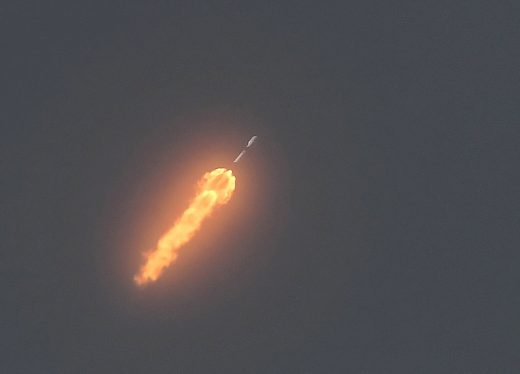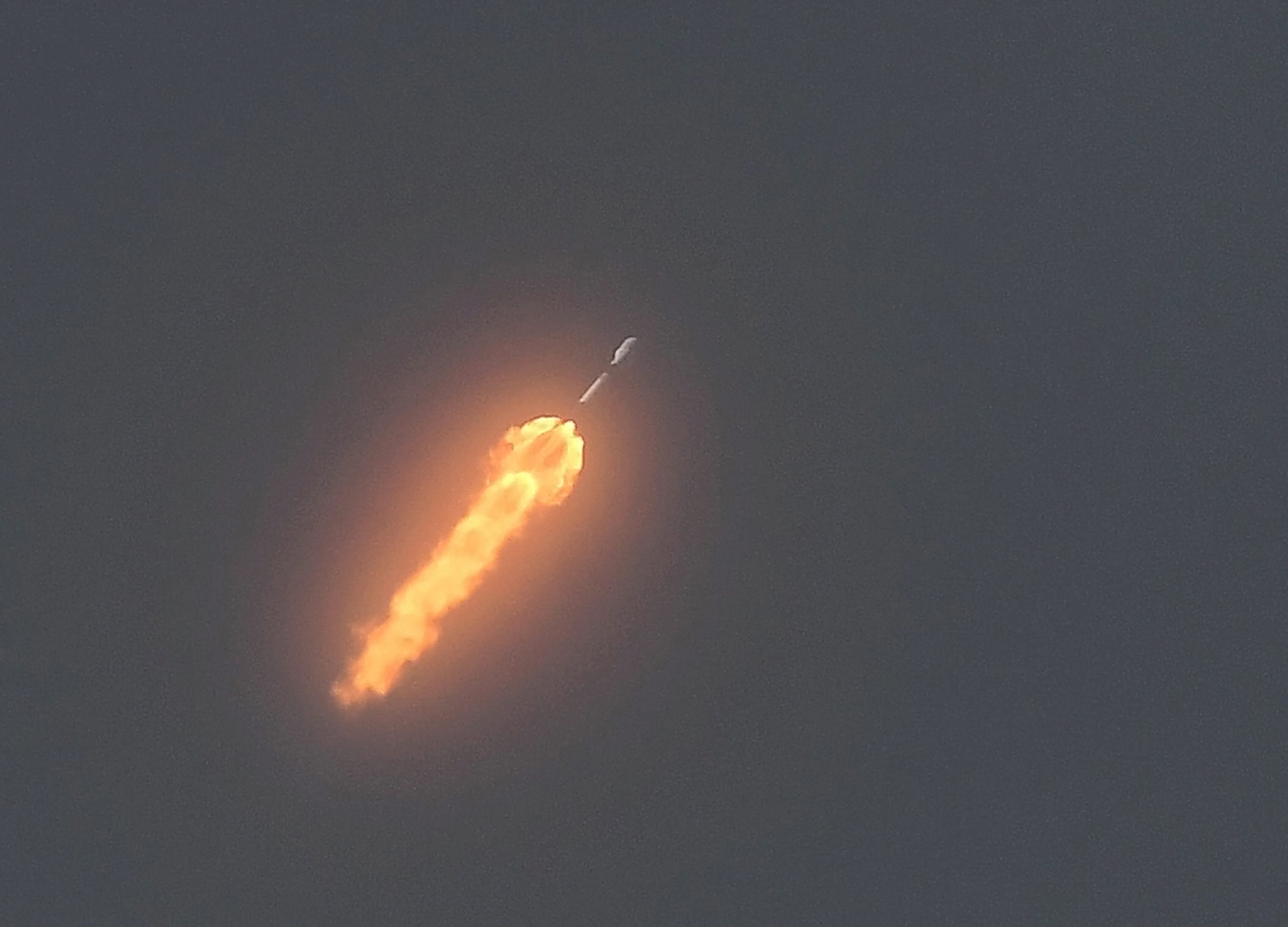SpaceX makes first polar orbit launch from Florida in ‘decades’
While SpaceX didn’t pull off a doubleheader Sunday launch like it planned, the company still managed a rare feat. Instead of launching eastward like every other Cape Canaveral rocket, the Falcon 9 headed south toward Cuba, close to populated areas on Florida’s coast (via The Verge). The “SAOCOM 1B” mission marks the first such “polar launch” from Florida since 1969, made possible by a special Air Force exemption for SpaceX.
Satellites bound for polar orbits (where a satellite passes over both the North and South Poles), usually launch from Vandenberg Air Force base in California. That way, they can head due south directly over the ocean without passing over any populated areas. By contrast, flights from Florida always head east over open seas, as southbound flights have been off-limits due to the presence of cities like West Palm Beach below.
However, due to wildfire dangers near Vandenberg, the Air Force decided to allow SpaceX — and only SpaceX — to launch south from Florida. It made the exception because the Falcon 9 has an automatic flight safety system that can destroy the rocket it it has an anomaly or goes off its intended path. It’s critical that the rocket can make that decision without human intervention, because the rocket engine blast can interfere with self-destruct commands from the ground.
The key danger point for SpaceX was shortly after take off as the Falcon 9 skirted the Florida coast. The first stage dropped before the rocket arrived over Cuba, and after that, it was high enough not to threaten the island.
While only SpaceX’s Falcon 9 has the exemption for now, existing and upcoming rockets like the United Launch Alliance Vulcan, Blue Origin’s New Glenn and SpaceX’s Falcon Heavy will all eventually be equipped with automated self-destruct systems. At that point, they’ll all be allowed to fly south from Cape Canaveral as well.
The SAOCOM 1B satellite launched by Argentina’s space agency will follow a sun-synchronous orbit that will allow it to monitor spots on Earth at the same time each day. It’ll use radar to monitor Earth for disasters that could affect its agricultural, mining and other industries. The Falcon 9’s stage one rocket used in the launch has now flown four times in total — and will fly again, thanks to another successful ground landing near the launch pad.
(26)




